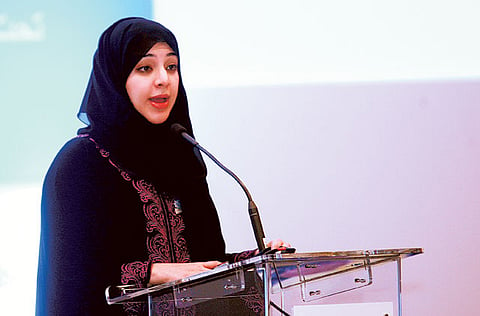UAE top tourism destination in the Arab world
Country ranks ahead of Egypt and Saudi Arabia in tourism receipts, survey shows

Dubai: The UAE is the world’s 31st popular tourism destination and the most popular in the Arab world, ahead of Egypt — ranked 32nd and Saudi Arabia ranked 35 — in terms of tourism receipts, United Nations World Tourism Organisation (UNWTO) data shows.
In the Middle East, Turkey outranks the UAE, retaining 12th position with tourism receipts climbing to $25.7 billion.
UAE’s international tourism receipts are somewhat close to $10 billion (Dh36.7 billion) that includes hotel revenues and the receipts from air travel.
UAE’s hotel revenues last year reached Dh21 billion serving 14.5 million hotel guests — including 10 million served by Dubai’s hotels and serviced apartments, according to the UAE National Council of Tourism and Antiquities (NCTA).
The tourism sector contributes 14 per cent of the UAE’s gross domestic product (GDP), Reem Al Hashemi, UAE Minister of State, said.
“Tourism accounts for 14 per cent of our GDP, which is well above the global average of 9 per cent,” she said at the UNWTO Ministerial Forum earlier this month. “Dubai is the most connected city in the world, connecting a third of the world’s population, according to the International Air Transportation Association. It connects 220 cities across the world and its airport is set to handle 66 million passengers this year.”
Strong season
Mohammad Khamis Bin Hareb Al Muhairi, Director-General of the UAE National Council of Tourism and Antiquities, said: “The UAE’s hotels hosted 14.5 million guests last year, with hotel revenues reaching Dh21 billion, reflecting the industry’s success.”
Peter Goddard, Managing Director of TRI Hospitality Consulting in Dubai, said, “2012/13 has been one of the strongest tourist seasons in Dubai’s history. Tourism arrivals from all regions have shown significant growth as the city’s leaders have ensured that both capacity and connectivity matched the growing tourism demand and visitor requirements. Dubai is now home to the world’s second busiest airport, further proving Dubai’s position as a primary destination as well as a major international transit hub.”
International arrivals to the Middle East declined marginally to 52.6 million last year, down from 55.3 million recorded in 2011, primarily due to the Arab Spring.
“The Middle East is one of the fastest growing tourism regions in the world in spite of countless challenges; much of this dynamism has been led by the strong political commitment awarded to tourism in the region and the vision that tourism is a key pillar of development in the Middle East, of which the UAE is a perfect example,” Dr Taleb Rifai, UNWTO Secretary-General, told Gulf News during the Arabian Travel Market earlier this month.
“However, the industry is challenged by the Arab Spring that has restricted tourists’ movement to some of the Arab countries, especially Egypt that has a large tourism industry.”
Travel advisories
Lebanon’s Minister of Tourism Fadi Abboud, said, his travel advisories are affecting the regional tourism industry. “Travel advisories give negative impressions in the mind of tourists. While the ground realities might be conducive to travel, the advisories prevent people to travel.
“Also the governments are prompt in putting travel advisories, they are not prompt in lifting them.”
He said, his country’s tourism industry is suffering due to travel advisories against Lebanon.
Gassan Aridi, Chief Executive of Alpha Tours, said, despite these challenges, the regional tourism will thrive. “With more and more people travelling globally, we expect a significant part of that to visit the Middle East due to continued economic growth and job creation — some of the factors that will continue to drive tourists to the region.
“With the Arab airlines expanding their fleets and network of destinations and their growing partnership with other international airlines, we expect this to accelerate in the coming years.”
Sign up for the Daily Briefing
Get the latest news and updates straight to your inbox

